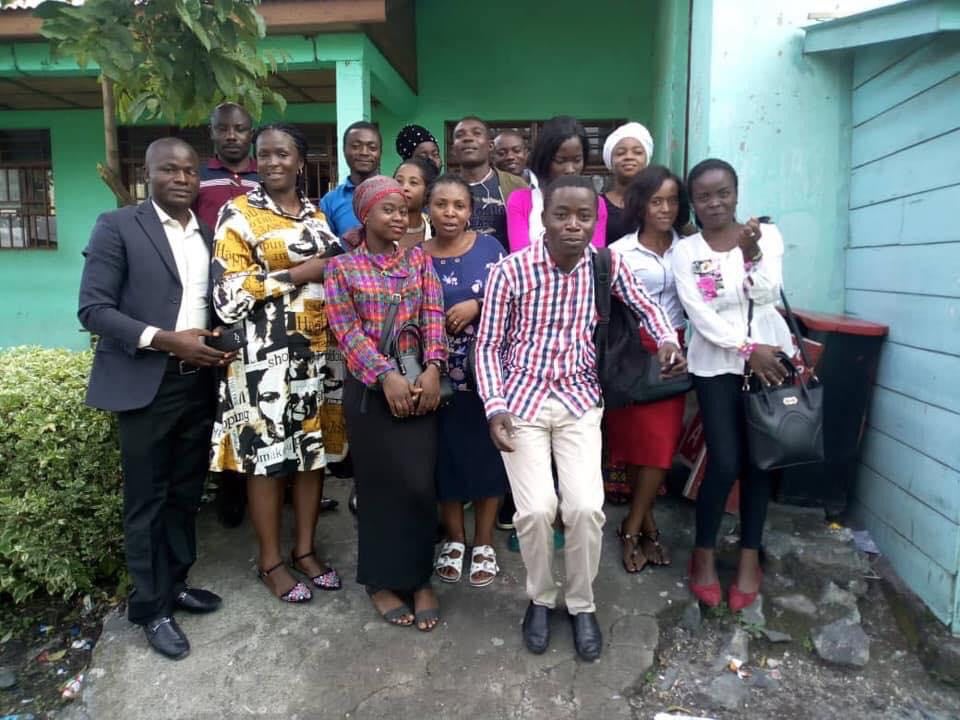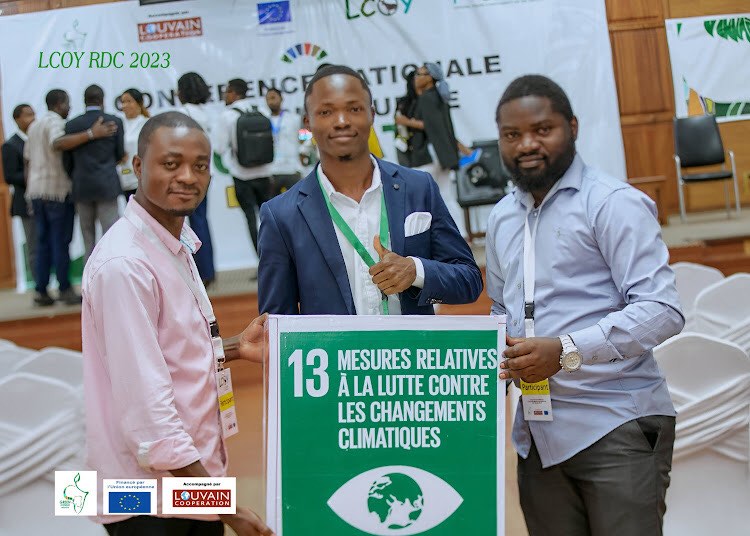
Part 2 MARK STATMAN: MEXICO AND THE POETRY OF GRIEF AND CELEBRATION
Part 2 of my interview with Mark Statman looks closely at Mark’s Latin American poetic influences, his life in Mexico and ends with an extract


I interviewed Bertin Kalimbiro from the Democratic Republic of Congo about his work in the Goma region to grow food safely and help people threatened by civil war, climate change, foreign exploitation and the 2021 volcanic eruption. Despite all the challenges, Bertin’s story is one of extraordinary resilience.
Leslie: What have been the self-help projects in the Goma region you’ve been involved in since the volcano erupted? What long-term and immediate pressures are people experiencing? How are they dealing with them?
Bertin: The Goma region has been facing multiple challenges for decades (volcanic eruption, repeated wars, etc.). The region has also faced infrastructure problems, such as electricity and water shortage, as well as urban crime. Added to these problems is the massive displacement of thousands of people coming from the territories of Rutshuru, Masisi and Nyiragongo during the civil war. Despite all this, the Goma region and all of North Kivu are developing extraordinary resilience, helping citizens to survive.

We also have several International, National and Local Non-Governmental Organizations helping the people most affected by the crises. However, this aid seems very little compared to the crying need presented by the displaced, including the direct victims of the volcanic eruption of May 2021 who have not yet been supported, as well as bereaved children and other vulnerable people. Our organization LIMA RESILIENCE is committed alongside the government and other humanitarian actors to provide aid to the vulnerable and displaced. We also help local communities who are the victims of environmental and social crimes by foreign mining companies.
Leslie: What has helped people to remain resilient and positive in the face of these challenges?
Bertin: The communities of Eastern DRC, who are living through a worsening security and social situation, still find, despite themselves, a way to bounce back. In short, communities have no choice but to adapt and create conditions that allow them to survive. The adage used for survival is “24 hours renewable”.

Leslie: How do people understand the term ‘community’ in your region, and how does it differ from people’s behaviour in many rich countries?
Bertin: ‘Living together’ is the phrase that best defines the idea of community for the people of Kivu. However, there are people who mistakenly believe that their community only comes from their own ethnic group. Rich countries, on the other hand, consider the community to be national solidarity, whereas in Congo it is ethnic solidarity that prevails.
Leslie: How have you personally had to adapt to the conditions affecting the region where you live?
Bertin: Being young, adapting to the conditions in our region is a challenge. It’s an uphill struggle to build stability and a solid professional life, despite the alarming social conditions all around. In addition, the regions best suited for agriculture and reforestation are the main conflict zones. As a result, we had to abandon those areas in favour of vegetable gardens in the city of Goma, even though production was insignificant compared to food crops in rural areas.

Next week I interview artist Beth Quarmby, who uses acrylic, charcoal, thread and collage.
ABOUT LESLIE TATE’S BOOKS:

Part 2 of my interview with Mark Statman looks closely at Mark’s Latin American poetic influences, his life in Mexico and ends with an extract

I interviewed international poet and translator Mark Statman about Volverse/Volver, his 14th published collection. Mark, who has won national arts awards, is Emeritus Professor of Literary

I interviewed Lisa Dart, finalist in the Grolier, Aesthetica and Troubadour Poetry Prizes and author of The Linguistics of Light (poems, Salt, 2008), Fathom (prose

I interviewed writer Julia Lee Barclay-Morton about her experience of autism. Julia began as an experimental dramatist in New York, moving to the UK to

I interviewed Gillean McDougall from Glasgow, who edited the collaborative projects Honest Error (on Charles Rennie Mackintosh and his wife Margaret Macdonald) and Writing the
| Cookie | Duration | Description |
|---|---|---|
| cookielawinfo-checkbox-analytics | 11 months | This cookie is set by GDPR Cookie Consent plugin. The cookie is used to store the user consent for the cookies in the category "Analytics". |
| cookielawinfo-checkbox-functional | 11 months | The cookie is set by GDPR cookie consent to record the user consent for the cookies in the category "Functional". |
| cookielawinfo-checkbox-necessary | 11 months | This cookie is set by GDPR Cookie Consent plugin. The cookies is used to store the user consent for the cookies in the category "Necessary". |
| cookielawinfo-checkbox-others | 11 months | This cookie is set by GDPR Cookie Consent plugin. The cookie is used to store the user consent for the cookies in the category "Other. |
| cookielawinfo-checkbox-performance | 11 months | This cookie is set by GDPR Cookie Consent plugin. The cookie is used to store the user consent for the cookies in the category "Performance". |
| viewed_cookie_policy | 11 months | The cookie is set by the GDPR Cookie Consent plugin and is used to store whether or not user has consented to the use of cookies. It does not store any personal data. |